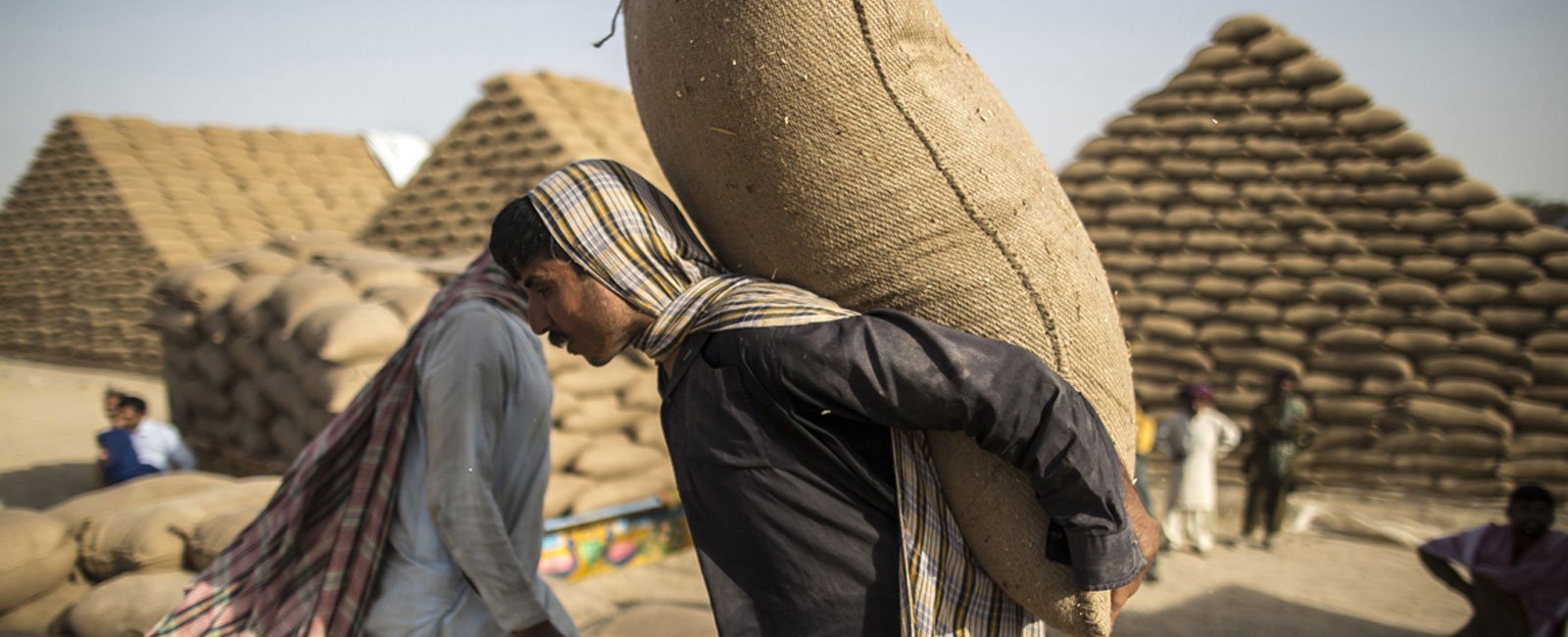Wheat crisis and a tale of corruption in Sindh’s food department
In last few years, wheat production has failed to keep up with demand of growing population. Hence, from wheat exporter, Pakistan is now wheat importer

On April 25, an appeal was posted on social media to the chief justice of Pakistan by a citizen named Ameer Hussain Khosa. As per his letter, the Sindh Food Department, which is tasked to ensure the provision of wheat and flour at a reasonable price to the public, had failed to control skyrocketing prices of grain in the province due to “massive political corruption”.
“The whole bureaucracy of the Sindh Food Department is controlled and under the influence of a lower grade food official, Assistant Food Controller Hassan Ali Magsi,” Khosa wrote in his appeal.
He accused Magsi of taking money from wheat hoarders and permitting them to drive up prices of the crop in the province.
Not only that, Khosa claims that the minister for the food department Mukesh Kumar Chawla and the secretary of the department were “providing these corrupt officials an ultimate safe passage and time to hide their corruption."
Khosa also alleges that Magsi is a resident of Balochistan, as per his domicile, but he was provided with a fake domicile of Hyderabad, in Sindh, to be appointed food controller.
An official letter by the District Commissioner Hyderabad, dated August 2021, also confirms that Magsi’s domicile could not be confirmed in Hyderabad.
These are serious allegations of mismanagement and abuse of authority by Sindh officials. Yet, the Sindh’s minister and secretary for the food department did not respond to Geo.tv’s repeated requests for comments. While Geo.tv could not contact Hassan Ali Magsi.
Separately, the Sindh High Court is also hearing a case against Magsi, filed by a government employee, Allah Bachayo.
He alleges that in 2013, around 28,000 wheat bags were lying in the food centre in Sindh’s town of Padidan, which were damaged and unfit for consumption. Yet, Magsi illegally transferred the bags to Karachi.
The petitioner said he was threatened and harassed when he tried to stop the official.
Till 2016, Pakistan was a major producer of wheat. But in the last few years, wheat production has not been able to keep up with the demand of a growing population. Hence, from a wheat exporter, Pakistan is now a wheat importer.
More recently, prices of the food grain have also been rising steeply across the country.
According to the Pakistan Bureau of Statistics, the price of a 20 kilograms bag of wheat, in the crop year 2018-2019, was Rs871. This has hiked up to Rs600-Rs700 for a 10 kilograms bag of wheat in just the first quarter of 2022.
In Sindh alone, the provincial government annually allocates billions of tax-payer money to subsidise wheat procurement by fixing the support price to help farmers get a better price for their crops. This year, the Economic Coordination Committee has set a target of procuring 1.4 million metric tonnes of wheat for Sindh and the Sindh cabinet has decided on a support price of Rs2,200 per mound for the province.
The purpose of wheat procurement, by the Sindh Food Department, is also to keep a check on irregularities in the open market and to ensure affordable wheat and flour to the public.
While an unusually early heat wave and dry weather in Pakistan this year are being cited as one reason for the reduction in the country's wheat harvest, another reason is mishandling and corruption in food departments.
The letter by Khosa is just one example highlighting possible dishonesty and graft.
Another letter also surfaced in March, seen by Geo.tv. It was a department appeal sent by several district food controllers in Sindh to the food secretary and chief secretary.
Quoting Section 23 of the Civil Servants Act 1973, the appeal pointed out that district food controllers (DFCs) were routinely appointed after sitting for a civil service exam or after the promotion of an additional district food controller.
But newly-appointed food controllers were “inexperience juniors”, the appeal noted.
“Those officers, who were supposed to report to DFCs, are now leading the district,” the letter read, “while the officers who were hired to lead the district are being made to sit in quarters waiting for postings.”
Meanwhile, an internal document of the Sindh Food Department, seen by Geo.tv, highlights that some of the men who were being probed by the National Accountability Bureau, on allegations of corruption, or were out on court bail have also been appointed District Food Controllers.
It is unclear, as of now, if any corrective measures will be taken by the Sindh government to deal with the brewing wheat crisis, as Sindh is already lagging behind its wheat procurement target for 2022.
Of the 1.4 million metric tonnes of wheat it aims to collect this year, the province has so far only been able to gather 53% as per media reports, even though it started procurement in March.
On the other hand, Punjab which started its wheat procurement in April has successfully achieved its target of around 3.5 million metric tonnes.
— Thumbnail image: Reuters/File




